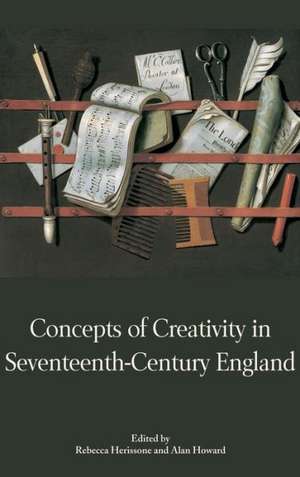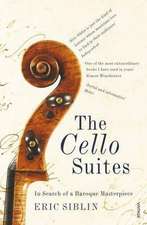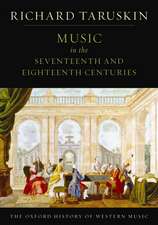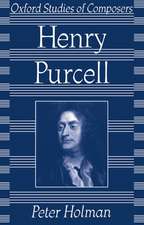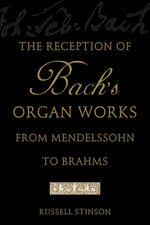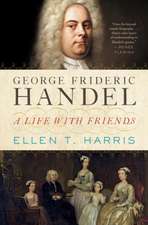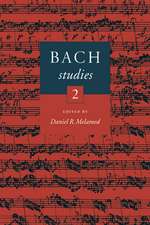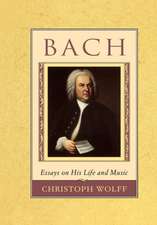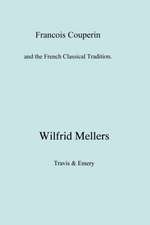Concepts of Creativity in Seventeenth–Century England
Autor Rebecca Herissone, Alan Howard, Andrew R. Walkling, James A. Winn, Kirsten Gibsonen Limba Engleză Hardback – 20 noi 2013
The aim of this interdisciplinary collection of essays is to explore what it meant to create buildings and works of art, music and literature in seventeenth-century England and to investigate the processes by which such creations came into existence. Through a series of specific case studies, the book highlights a wide range of ideas, beliefs and approaches to creativity that existed in seventeenth-century England and places them in the context of the prevailing intellectual, social and cultural trends of the period. In so doing, it draws into focus the profound changes that were emerging in the understanding of human creativity in early modern society - transformations that would eventually lead to the development of a more recognisably modern conception of the notion of creativity. The contributors work in and across the fields of literary studies, history, musicology, history of art and history of architecture, and their work collectively explores many of the most fundamental questions about creativity posed by the early modern English 'creative arts'.
REBECCA HERISSONE is Head of Music and Senior Lecturer in Musicology at the University of Manchester.
ALAN HOWARD is Lecturer in Music at the University of East Anglia and Reviews Editor for Eighteenth-Century Music.
Contributors: Linda Phyllis Austern, Stephanie Carter, John Cunningham, Marina Daiman, Kirsten Gibson, Raphael Hallett, Rebecca Herissone, Anne Hultzsch, Freyja Cox Jensen, Stephen Rose, Andrew R. Walkling, Amanda Eubanks Winkler, James A. Winn.
Preț: 755.57 lei
Preț vechi: 981.26 lei
-23% Nou
Puncte Express: 1133
Preț estimativ în valută:
144.59€ • 157.01$ • 121.46£
144.59€ • 157.01$ • 121.46£
Carte tipărită la comandă
Livrare economică 22 aprilie-06 mai
Preluare comenzi: 021 569.72.76
Specificații
ISBN-13: 9781843837404
ISBN-10: 1843837404
Pagini: 372
Dimensiuni: 161 x 239 x 36 mm
Greutate: 0.7 kg
Ediția:New.
Editura: BOYDELL PRESS
ISBN-10: 1843837404
Pagini: 372
Dimensiuni: 161 x 239 x 36 mm
Greutate: 0.7 kg
Ediția:New.
Editura: BOYDELL PRESS
Notă biografică
Rebecca Herissone, Alan Howard
Cuprins
Introduction - Rebecca Herissone 'Big with New Events and some Unheard Success': Absolutism and Creativity at the Restoration Court - Andrew R. Walkling Creativity on Several Occasions - James A. Winn Author, Musician, Composer: Creator? Figuring Musical Creativity in Print at the Turn of the Seventeenth Century - Kirsten Gibson Published Musical Variants and Creativity: An Overview of John Playford's Role as Editor - Stephanie Carter Space, Text and Creativity in the Late Sixteenth and Seventeenth Centuries - Raphael Hallett The 'Artificial Sceane': The Re-creation of Italian Architecture in John Evelyn's Diary - Anne Hultzsch Telling what is Told: Originality and Repetition in Rubens's English Works - Marina Daiman Plagiarism at the Academy of Ancient Music: A Case Study in Authorship, Style and Judgement - Stephen Rose A meeting of Amateur and Professional: Playford's 'Compendious' Collection of Two-Part Airs, Court-Ayres (1655) - John Cunningham 'Creating' Cato in Early Seventeenth-Century England - Freyja Cox Jensen 'Our Friend Venus Performed to a Miracle': Anne Bracegirdle, John Eccles and Creativity - Amanda Eubanks Winkler Music and Manly Wit in Seventeenth-Century England - Linda Phyllis Austern
Descriere
The first genuinely interdisciplinary study of creativity in early modern England
